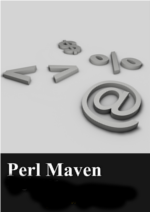Reading multi line records from Ericsson GSM telco data
Given a <rlnrp:cell=all; (look at the first line of the file) type data file describing relationships between GSM cells, we need to flatten the multi-line records. Probably in order to import them into a database.
Such tasks are often required by engineers in telco companies or companies that support them.
First let's see the input data, the expected output and a bit of a description.
The input data
<rlnrp:cell=all; NEIGHBOUR RELATION DATA CELL G37423 CELLR DIR CAND CS G31761 MUTUAL BOTH NO KHYST KOFFSETP KOFFSETN LHYST LOFFSETP LOFFSETN 3 0 3 0 TRHYST TROFFSETP TROFFSETN AWOFFSET BQOFFSET 2 0 5 3 HIHYST LOHYST OFFSETP OFFSETN BQOFFSETAFR BQOFFSETAWB 5 3 0 3 CELLR DIR CAND CS G37911 MUTUAL BOTH NO KHYST KOFFSETP KOFFSETN LHYST LOFFSETP LOFFSETN 3 0 3 0 TRHYST TROFFSETP TROFFSETN AWOFFSET BQOFFSET 2 0 5 3 HIHYST LOHYST OFFSETP OFFSETN BQOFFSETAFR BQOFFSETAWB 5 3 0 3 CELL G37521 CELLR DIR CAND CS G37422 MUTUAL BOTH YES KHYST KOFFSETP KOFFSETN LHYST LOFFSETP LOFFSETN 3 0 3 0 TRHYST TROFFSETP TROFFSETN AWOFFSET BQOFFSET 2 0 5 3 HIHYST LOHYST OFFSETP OFFSETN BQOFFSETAFR BQOFFSETAWB 5 3 0 3 CELLR DIR CAND CS G37421 MUTUAL BOTH YES KHYST KOFFSETP KOFFSETN LHYST LOFFSETP LOFFSETN 3 0 3 0 TRHYST TROFFSETP TROFFSETN AWOFFSET BQOFFSET 2 0 5 3 HIHYST LOHYST OFFSETP OFFSETN BQOFFSETAFR BQOFFSETAWB 5 3 0 3 END
The expected output data
If your screen is not wide enough it might be a bit unclear, but in the expected output we have one header line and 4 data lines. Try to reduce the font-size to see how it should look like. The line numbers on the left can be a clue to the real lines in the expected output file.
CELL CELLR DIR CAND CS KHYST KOFFSETP KOFFSETN LHYST LOFFSETP LOFFSETN TRHYST TROFFSETP TROFFSETN AWOFFSET BQOFFSET HIHYST LOHYST OFFSETP OFFSETN BQOFFSETAFR BQOFFSETAWB G37423 G31761 MUTUAL BOTH NO 3 0 3 0 2 0 5 3 5 3 0 3 G37423 G37911 MUTUAL BOTH NO 3 0 3 0 2 0 5 3 5 3 0 3 G37521 G37422 MUTUAL BOTH YES 3 0 3 0 2 0 5 3 5 3 0 3 G37521 G37421 MUTUAL BOTH YES 3 0 3 0 2 0 5 3 5 3 0 3
A bit of description
The first few lines, up until the first line with 'CELL' in it can be regarded as garbage for our purposes.
There are several sections starting with 'CELL'.
In each section there are several records starting with 'CELLR'. Each such record spreads several lines. As I can see in this cases each record has 12 physical line which is split up into 4 logical lines. Each logical line consist of 3 physical lines: a header, a data and and empty line.
CELL is serving cell and CELLR is neighbouring cell.
The line with the 'END' indicates the end of all the file.

Published on 2013-07-10
